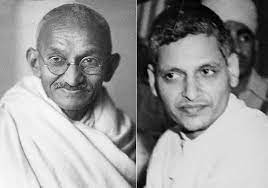The assassination of Mahatma Gandhi by Nathuram Godse on January 30, 1948, is a somber chapter in India’s history. Godse, a Hindu nationalist, shot Gandhi three times at close range during a prayer meeting in New Delhi, leading to the leader’s tragic demise.
Godse’s transformation from a Gandhi supporter to a radical activist emphasizes the intricate nature of ideological changes and the grave outcomes of extreme deeds. This occurrence highlights the significance of harmonious discourse and empathy in shaping a just society.
Godse’s act of violence was a direct contradiction to Gandhi’s teachings of nonviolence and tolerance. It was a repudiation of the values that Gandhi had fought for throughout his life.
The assassination of Mahatma Gandhi was a profound loss for India and the world. He was a towering figure who inspired millions with his message of peace and love. His death was a reminder of the fragility of democracy and the importance of vigilance against extremism.
As we remember Mahatma Gandhi on his death anniversary, let us recommit ourselves to his ideals of nonviolence, tolerance, and compassion. Let us work together to create a world where everyone is treated with dignity and respect.
